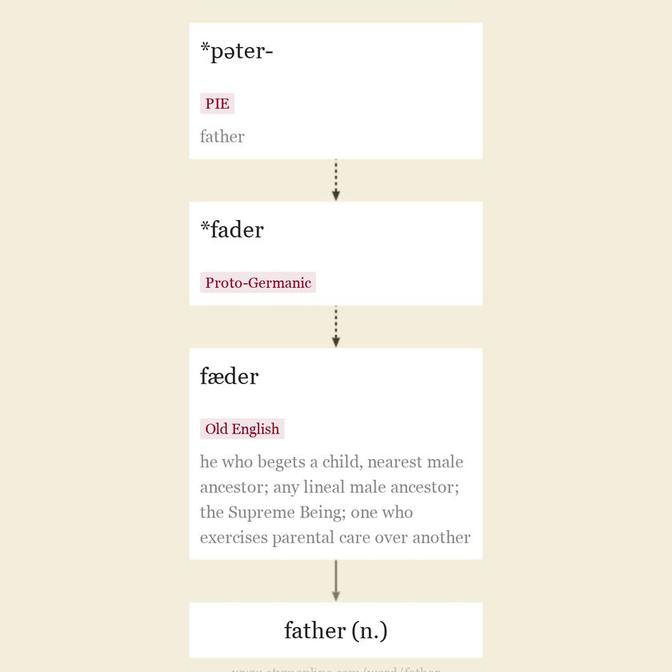vaterland n.
1852, from German Vaterland, from Vater (see father (n.)) + Land (see land (n.)).
Entries linking to vaterland

Old English fæder "
My heart leaps up when I behold
A rainbow in the sky:
So was it when my life began;
So is it now I am a man;
So be it when I shall grow old,
Or let me die!
The Child is father of the Man;
I could wish my days to be
Bound each to each by natural piety.
[Wordsworth, 1802]
The classic example of Grimm's Law, where PIE "
Old English lond, land, "
Etymological evidence and Gothic use indicates the original Germanic sense was "
updated on March 08, 2014